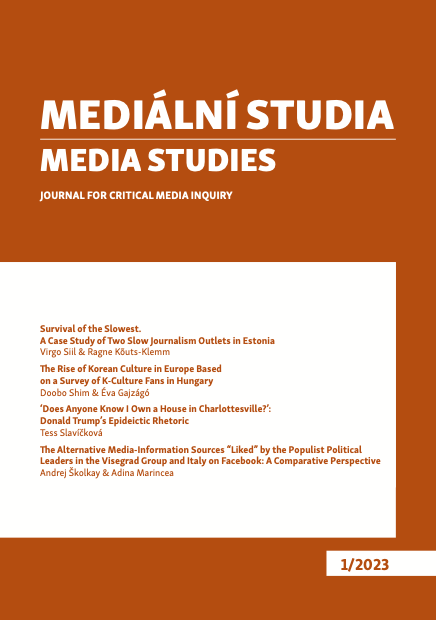The Alternative Media-Information Sources “Liked” by the Populist Political Leaders in the Visegrad Group and Italy on Facebook
The Alternative Media-Information Sources “Liked” by the Populist Political Leaders in the Visegrad Group and Italy on Facebook
A Comparative Perspective
Author(s): Andrej Školkay, Adina MarinceaSubject(s): Politics / Political Sciences, Social Sciences, Communication studies
Published by: Univerzita Karlova v Praze, Fakulta sociálních věd
Keywords: populism; political communication; Facebook; "Like" button; Babiš; Matovič; Kaczynski; Kollár; Morawiecki; Orbán; Salvini; network analysis
Summary/Abstract: This study presents a comparative overview of the way the Facebook (FB) “Like” button wasused by the selected populist leaders in four Central-Eastern European countries and Italyfor a more permanent designation of their favourite public pages. In particular, researchattention was focused on identifying the “alternative” media as potentially the main ora major source of linked and “liked” (both literally and figuratively) media and informationsources on FB. If present, this should prove the existence of the ideological affinity betweenthe “alternative” politics as presented by the populist leaders and parties and the “alternative”media. However, only some limited evidence in support for such connections in thefive case studies was found. In contrast, although the original sample was carefully andlogically selected based on cultural-historical-geographical proximity and presence of populistleaders (the most similar cases), the results suggest rather diverse results. The populistleaders under the analysis do not seem to have direct and more permanent affinity towardthe “alternative” media sources. Even more in some cases (Matovič, Babiš) they seem to preferthe quality liberal mainstream media, while in other cases (Kaczynski, Morawiecki andSalvini) they prefer the ideologically close media, or show no more permanent preference forany media – Orbán and Kollár (who did not use this tool for more permanent designation ofthe “liked” media). These diverse findings suggest more questions than answers.
Journal: Mediální studia
- Issue Year: 17/2023
- Issue No: 1
- Page Range: 72-92
- Page Count: 21
- Language: English

